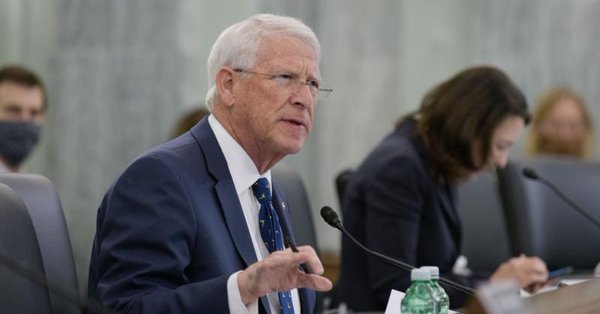Don’t go broke because they went woke
By Treasurer David McRae
Note: The following is a weekly column provided by Mississippi State Treasurer David McRae.
I have done a lot of traveling across Mississippi in the last few weeks, and I am always surprised when at nearly every stop someone asks: What are you going to do about ESG?
ESG is the wonky of all wonky issues, but it intimately affects almost every Mississippian. Short for “Environmental, Social, and Governance,” the policy forces financial institutions (such as your bank or pension system) to prioritize left-leaning agendas over the profitability of your investments. Currently, only a few banks are “all in” on ESG funds, but the Biden administration is working to force companies into compliance. If they are successful, the consequences could be massive.
For instance, if you have a 401(k), your retirement fund could increase at a slower pace, requiring you to work a little longer. If you set aside money in a college savings plan, you may not see the growth you hoped for before tuition bills are due. If you have worked your entire life for the state, your pension could be jeopardized.
Today, the primary ESG target is American energy. More specifically, some banks are refusing to invest in fossil fuels (such as oil and coal, which are among the nation’s most affordable energy sources). Of course, investments into the globe’s largest polluter and human rights abuser, China, are still allowed. The impact is two-fold. First, these ESG funds are expected to grow your retirement or savings account at a slower pace. Second, the Tesla-driving ultra-rich are siphoning funds away from the very industry that is needed to reduce gas prices for the average American. They have put their own “wokeness” above your wallet – and it’s costing you in a big way.
Of course, the fossil fuel industry isn’t the only ESG target. Companies are being evaluated according to the gender of their governing board, their relationship to the 2nd Amendment, and even their commitment to veganism. I believe in the free market and if consumers want to put these priorities first, then they should have a financial product that serves them. But consumers aren’t being given that freedom of choice today. Hit with blow after blow by the Biden administration’s heavy regulatory fist, we are all being forced into obedience – regardless of what is best for our own families.
More specifically, the President’s SEC has appointed the first senior policy advisor on climate and ESG. They have also grossly expanded their monitoring of private companies’ climate-related activities and have signaled that more extreme surveillance may be coming. In other words, the Biden administration did not erect a watchdog group to ensure investors are upholding their fiduciary responsibility to you – the saver, the future retiree. Instead, they want to know whether investment funds are in compliance with the Green New Deal and radical climate change policy.
ESG is nothing more than a feel-good agenda written by liberal elites. It won’t get you closer to retirement. It won’t help you afford a college education for your child. And frankly, it won’t even clean up the environment as it promises to do. Instead, ESG policies undermine the free market, your free will, and our economic freedom. As a financial officer for the state charged with ensuring the college savings and pension systems remain funded, I will continue to fight the radicalized ESG agenda. And specifically, as a member of the board that oversees state pensions, I am extremely supportive of new legislative initiatives to protect pension systems from being forcibly pushed into less profitable ESG investment schemes.
We must make sure you won’t go broke because financial institutions were forced by the Biden administration to go woke.
Mississippi Treasurer David McRae is the 55th Treasurer for the State of Mississippi. In this role, he helps manage the state’s cash flow, oversees College Savings Mississippi, and has returned more than $45 million in unclaimed money to Mississippians. For more information, visit www.Treasury.MS.gov






